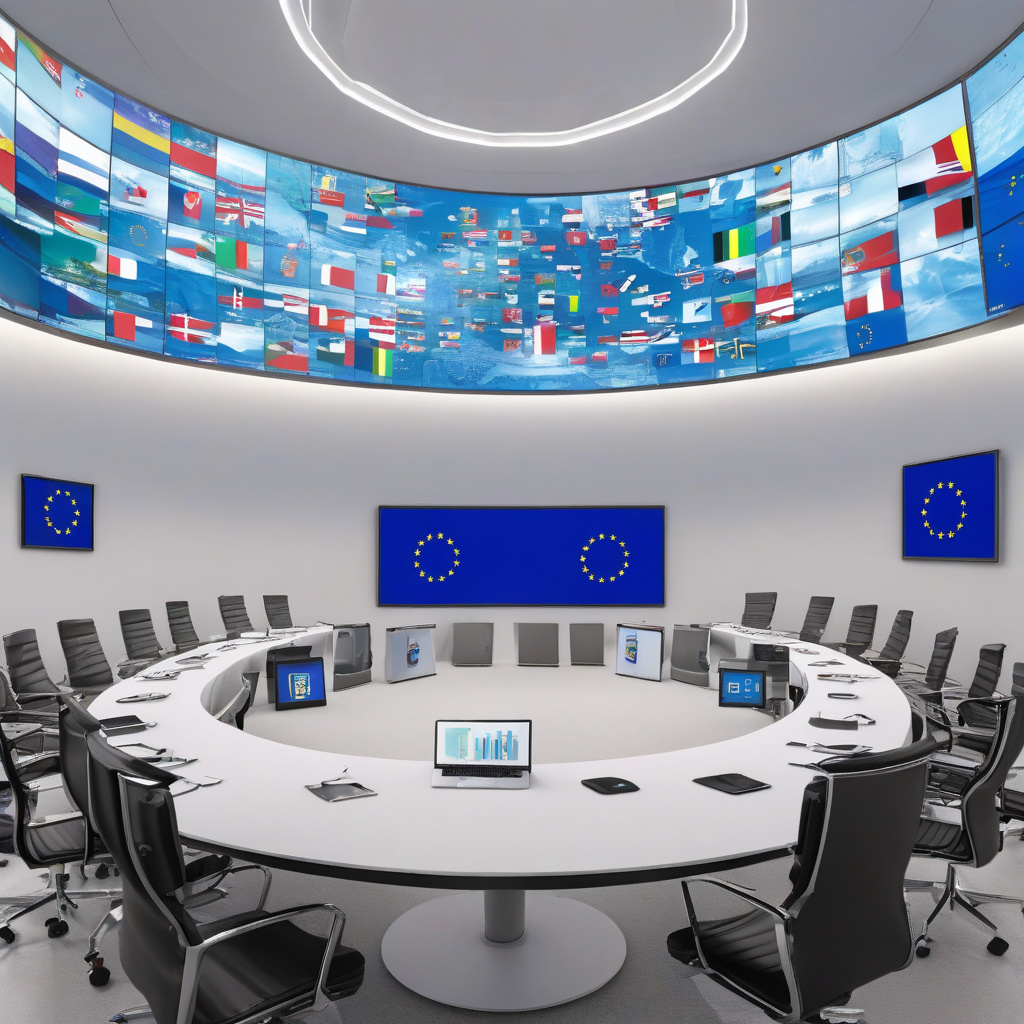EU Launches Global Digital Strategy: A Bold Step Towards Technological Dominance while Upholding Democratic Values
In the fast-paced realm of digital innovation, the European Union has taken a significant leap forward by launching a global digital strategy that aims to position the EU as a key player in the digital landscape. This strategic move comes at a time when the competition for digital dominance is intensifying, with countries and regions around the world vying for leadership in emerging technologies such as artificial intelligence, blockchain, and 5G networks.
What sets the EU’s digital strategy apart is its emphasis on not only technological advancement but also the preservation of democratic values and the promotion of international cooperation. In an era where concerns about data privacy, cybersecurity, and the ethical use of technology are at the forefront, the EU’s approach underscores a commitment to ensuring that digital progress is aligned with the principles of democracy, human rights, and transparency.
One of the key pillars of the EU’s digital strategy is the promotion of a competitive and vibrant digital single market within the European Union. By breaking down barriers to cross-border digital trade, harmonizing regulations, and fostering innovation across member states, the EU aims to create a level playing field that enables European businesses to compete globally and allows consumers to benefit from a wide range of digital services and products.
Furthermore, the EU’s digital strategy focuses on investing in digital infrastructure, skills, and research to drive technological advancements and ensure that Europe remains at the forefront of innovation. By supporting the development of cutting-edge technologies, such as quantum computing and high-performance computing, the EU seeks to strengthen its digital capabilities and enhance its competitiveness in the global digital economy.
In addition to fostering internal digital growth, the EU’s strategy also emphasizes the importance of forging international partnerships and shaping global digital standards. By engaging with like-minded countries and international organizations, the EU aims to promote a vision of the digital future that upholds fundamental rights, fosters trust among users, and enables fair competition in the digital marketplace.
The EU’s digital strategy is not only about economic growth and technological advancement but also about ensuring that the benefits of digitalization are shared equitably among all citizens. By prioritizing digital inclusion and literacy, the EU seeks to bridge the digital divide, empower individuals with digital skills, and create opportunities for all Europeans to participate in the digital society.
As the EU embarks on this ambitious digital journey, it faces a range of challenges and obstacles, from regulatory complexities to geopolitical tensions. However, by staying true to its principles of democracy, solidarity, and cooperation, the EU is well-positioned to navigate these challenges and emerge as a global leader in shaping the digital future.
In conclusion, the launch of the EU’s global digital strategy marks a significant milestone in the digital transformation of Europe and sets a powerful example for the rest of the world. By combining technological ambition with a commitment to democratic values and international cooperation, the EU is paving the way for a digital future that is not only innovative and competitive but also inclusive and ethical.
EU, Digital Strategy, Innovation, Global Leadership, Technological Advancement












